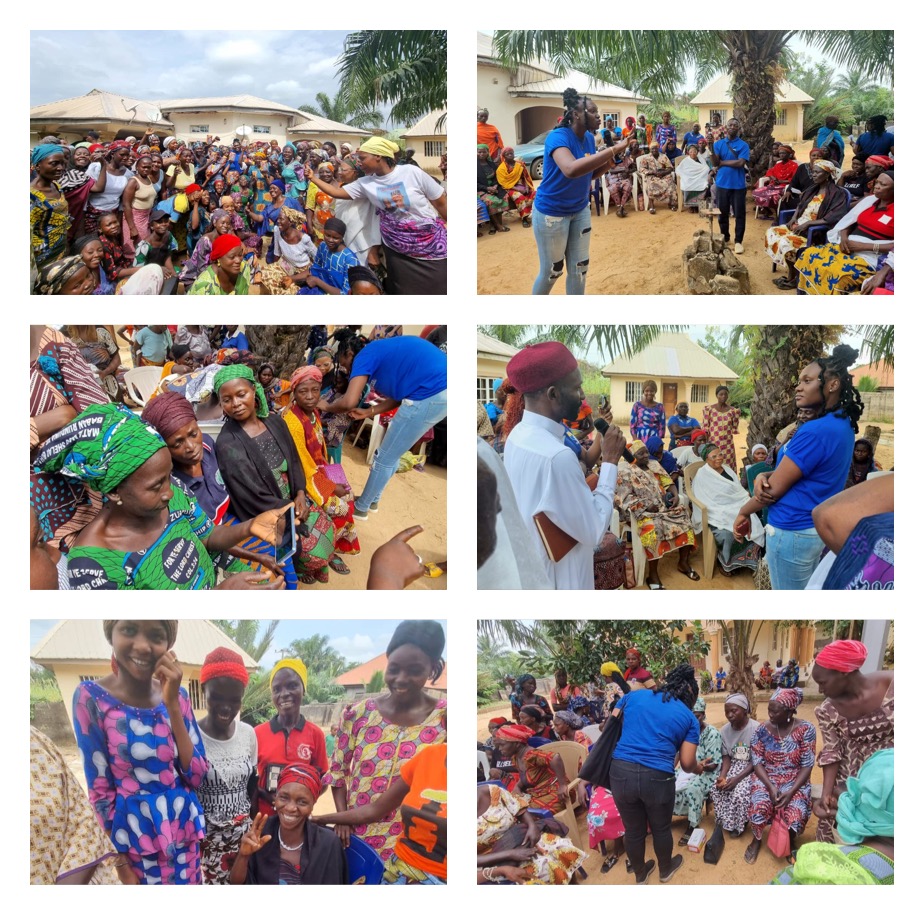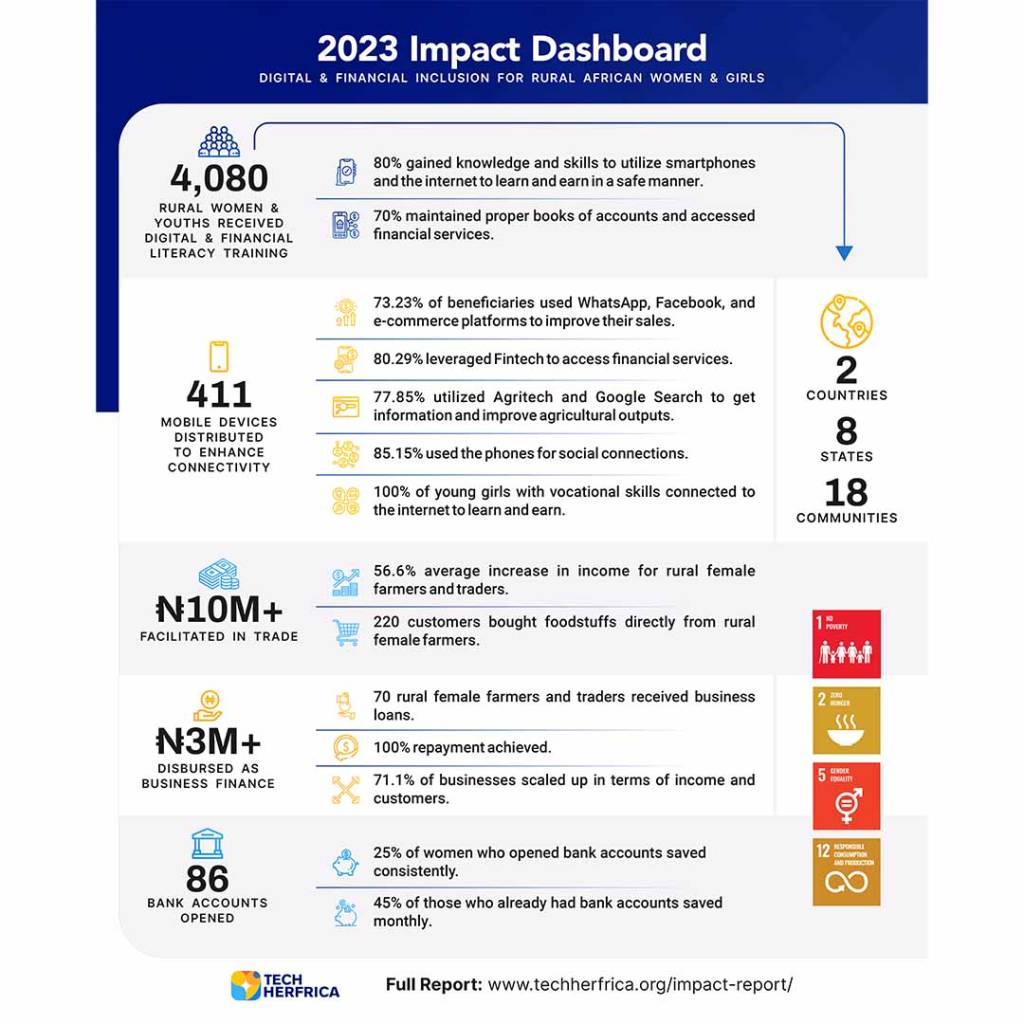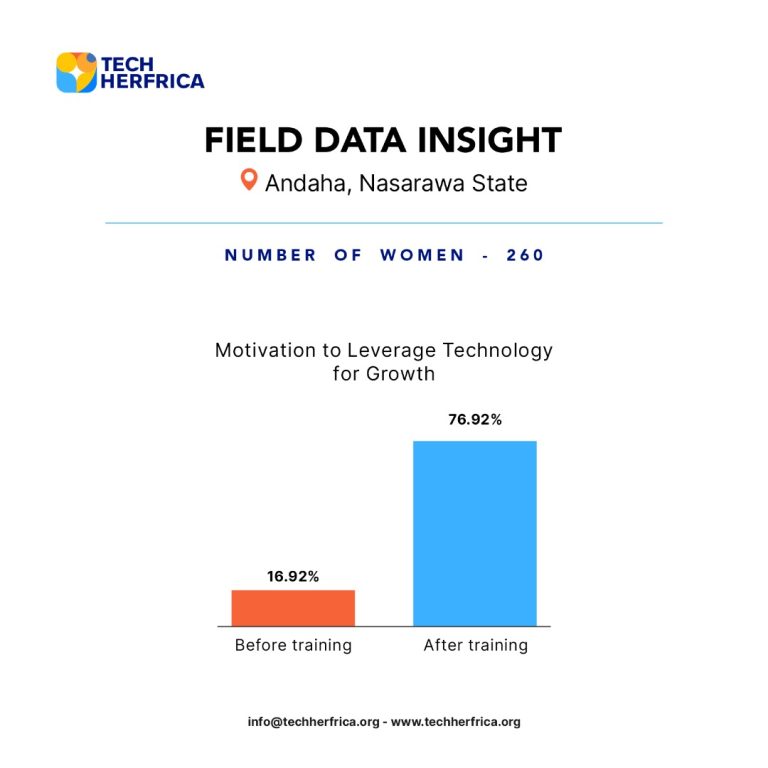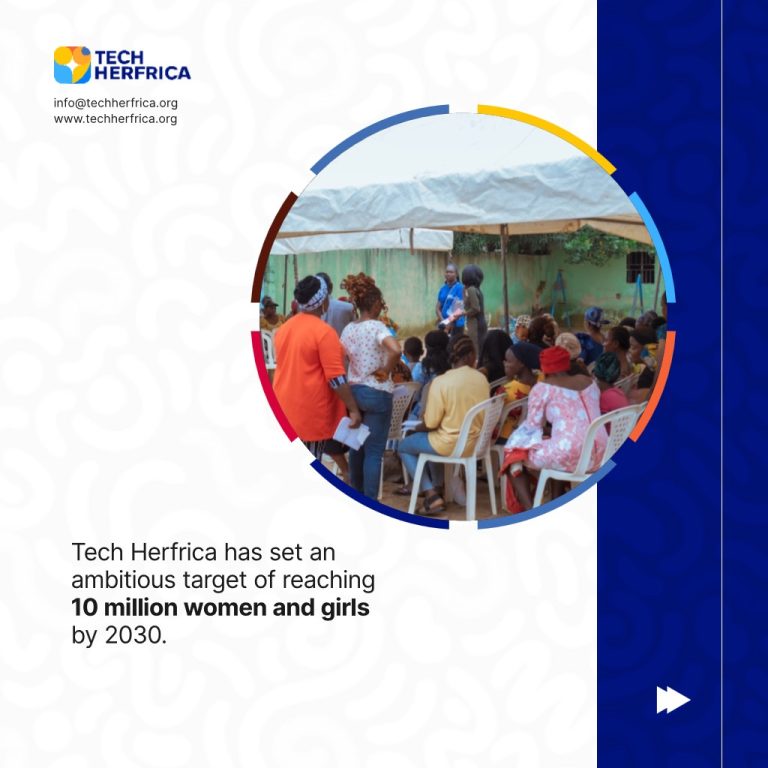Bridging the Digital Divide: Equipping Women in Africa
Introduction
Imagine a world where women farmers can’t access market prices, weather forecasts, or farming tips online.
Across Africa, women face a disproportionate burden of the “digital divide“—the unequal access to and use of technology. Rooted in social norms, economic constraints, and limited opportunities, this gap hampers education, economic growth, communication, and social engagement.
This gender digital divide cuts across regions and demographics, creating barriers in various aspects of life. From academic advancement to business opportunities, limited digital access widens the gap between the “haves” and “have-nots.” This has deep ramifications, hindering economic inclusion, social development, and overall progress.
The Problem
The Gender Gap
Women in Africa are falling behind in the digital revolution. Just 23.6% of women have internet access, compared to 37.2% of men. This gap widens further in frequency of use and smartphone ownership. This isn’t just a number; it’s a missed opportunity for education, economic growth, and social connection. Bridging this “gender gap” requires more than just infrastructure – it demands a multifaceted approach that tackles social norms, and economic disparities, and empowers women to embrace the digital future. The impact is clear: closing this gap isn’t just about technology, it’s about unlocking the full potential of Africa’s future.
Africa's Mobile Boom: Unequal Growth and Bridging the Gap
Africa’s mobile phone landscape is booming, with Sub-Saharan Africa boasting 477 million connections by 2020. Yet, disparities linger. Urban areas outpace rural regions, and women face hurdles like limited infrastructure, cultural norms, affordability, and digital literacy. These factors contribute to a 7% mobile ownership gap between men and women. By ensuring equitable access across gender, location, and cultural context, Africa can unlock the full potential of its mobile revolution.
Effects of the Gender Digital Divide
The gender digital divide has far-reaching consequences that impact individuals, communities, and economies.
Individual Effects:
Lack of digital access can hinder communication with family and friends, limit access to healthcare information, and create a sense of isolation. This restricts opportunities for education, skill development, and participation in civic life. Without access to digital tools and information, women may have reduced economic opportunities, less control over their lives, and become more vulnerable to exploitation.
Community Effects:
The digital divide exacerbates existing disparities in income, education, and health between men and women. In most rural communities, women are the largest contributors to the well-being of their families, and due to this divide, communities lose out on the potential contributions of women through innovation as they cannot maximize their potential in this digitally driven world. This also leads to women’s perspectives and needs being excluded from online discussions and decision-making processes.
The Solution
Africa Rising: Bridging the Digital Divide for Women Farmers
Africa’s mobile landscape is exploding! Across the continent, over 700 million people are now connected, surpassing even the US and Europe. This rapid growth fuels incredible opportunities, but a crucial gap remains: rural women and less-educated populations often lack access to this transformative technology.
This digital divide presents not just an individual barrier, but a hurdle for entire communities. A lot of potential is locked away when women farmers can’t access market updates, weather forecasts, or essential information directly on their phones. By empowering these women with the tools and skills they need to thrive in the digital age, Tech Herfrica is striving to unlock the incredible potential in these women.

Tech Herfrica doesn’t just provide rural women with phones; we equip them with the knowledge and confidence to use them effectively. From navigating online marketplaces to staying updated on vital agricultural information, these skills translate into economic growth and empowerment. The impact is undeniable: beneficiaries experience a staggering 56% increase in income on average.
Tech Herfrica's Solutions

- EquipHer4Growth: EquipHer4Growth represents a comprehensive innovation committed to breaking the cycle of poverty among rural women by providing holistic digital and financial inclusion. It empowers these women with both digital and financial knowledge and skills in their local language and context, while also facilitating access to internet-enabled or feature-rich mobile devices based on their specific needs.
- Access to Market: We have co-created a technology enabler in the form of an e-commerce web application – Her Local Market. The aim is to connect female farmers and traders in rural and underserved communities to domestic and international buyers for quality food items at the best prices. This ensures that farmers earn more, while buyers pay less.
- Agric Scale-Up: This innovative approach centers on specialized training and support tailored to empower rural farmers, especially women, to improve agricultural productivity. The initiative’s key objective is to enhance agricultural productivity through the adoption of modern technologies, improved seed varieties, and best farming practices, considering the effects of climate change.
- Digital Literacy for All: We conduct digital literacy training for pupils in primary and secondary schools in rural and underserved communities in Africa, preparing them on how to leverage technology for growth.
- Access to Financial Services: As part of the EquipHer4Growth solution, we facilitate access to financial services for our beneficiaries, an initiative we have termed “Eféréne.”. We also facilitate access to health care and long-term savings.
- Policy Advisory: We contribute to, and influence the development of evidence-based policies that promote digital equity and the empowerment of women and girls at all levels.
- Stakeholder Engagement: We engage with government and other relevant stakeholders to provide the enabling infrastructure in rural and underserved communities.
The Impact
Our beneficiaries experience an average income increase of 56%, demonstrating the link between digital access and economic prosperity.
Tech Herfrica’s approach serves as a model for tackling the digital gender gap in Africa and beyond.

Conclusion
Future & Collaboration
We see a future that is pregnant with possibilities if only we acknowledge this divide and collaborate to ensure that we can bridge it. Initiatives like Project Loon and Express Wi-Fi aim to bring affordable internet to remote areas with high female populations, this would increase the accessibility of these women to the online space. AI-powered learning can personalize education, by translating educational information into the unique languages of these women, thereby removing language barriers.
Furthermore, connecting these women with female tech leaders and offering targeted programs can inspire a more inclusive society. Creating a safe online space and bridging this digital divide requires collaborative efforts from governments, educators, and communities, such that these women are given room to grow and evolve as they get more accustomed to the digital space without being exploited.
Collective Action is Key
Organizations like Mobile Seva in India and Girls in Tech in Kenya, just like Tech Herfrica here in Nigeria, showcase impactful solutions across diverse contexts. Closing the digital gender gap requires collaboration from all stakeholders. By embracing advancements, unlocking opportunities, and supporting existing initiatives, we can build a truly inclusive digital world where women and girls can thrive. By bridging the digital divide, we’re not just connecting individuals, we’re fueling communities and driving positive change across Africa.
So, join the movement! Support organizations like Tech Herfrica, advocate for equitable access, and let’s empower women to rewrite their futures, one connection at a time.
Remember, bridging this gap is not just a technological challenge, but a social and economic imperative. Let’s act together to empower women to shape the digital future.



